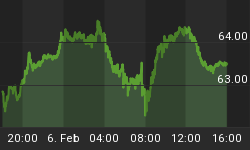Since WW2 economic theorists have posited that demand in the economy could be stimulated by a combination of deficit spending by the government and by suppressing interest rates. The separation of demand from production was promoted by Keynes and interest rate management of the economy by monetarists, though there is considerable overlap between the two. Yet no progress in economic management has been achieved: instead we appear to be on the brink of a major economic dislocation.
Far from banishing the business cycle, it has become worse. To understand why it's worth looking at the reason the concept is failing.
Without government intervention, the economy clears its goods and services at prices determined by the consumer. All production in free markets is aimed to satisfy consumer demand. Equally, the consumer has to earn in order to spend, so his efforts are directed at producing goods and services others are prepared to buy. An economy so based carries uncertainty for the individual which he offsets by saving some of his surplus income, and through financial intermediaries his savings are leant to businesses for investment in the means of production.
If only the world was so simple. Instead we have government, which in modern times increasingly intervenes. We are all familiar with attempts from the pharaohs onwards to divert economic resources towards projects not designed to satisfy human consumption. What is less understood is intervention by manipulating the cost and quantity of money.
If a central bank forces lower interest rates on the market, this falsely alerts the businessman to a savings glut, the result of a reduction in consumption. His first response is therefore to cut his costs so that he can lower his prices to protect his profits. When interest rates remain low he begins to think about investing in more efficient means of production, so that he can keep his prices low and compete in difficult markets. And when he finds that interest rates still remain low he becomes more confident about the future and plans for expansion.
So far the objectives of the central bank are being achieved. The recession has been stopped and modest growth restarts. Furthermore some businesses are cautiously hiring people again. In a nutshell, this describes the current position in the US and UK economies, where there is patchy evidence of capital spending and increasing employment. But then we run into a roadblock: the businessman finds that all other businesses have fallen for the monetary trick, and everyone is chasing the same rainbow. Normally price inflation results, interest rates rise and before very long the businessman is forced to cut his losses. Then the cycle starts over again.
Only this time, the final act of the business cycle is ending differently. The accumulated burden of debt has become too great for consumers and even governments themselves to bear. Financial reality is finally intervening, and consumption simply cannot grow as the Keynesians and monetarists intended. What was originally an economic problem, believed to be solvable by deficit spending and interest rate management has become a financial problem.
The truth of this statement appears to be finally dawning on bond and equity markets, with a rush into the safe haven offered by the former and an aversion to the risks in the latter, a process that having just started has a long way to go.















